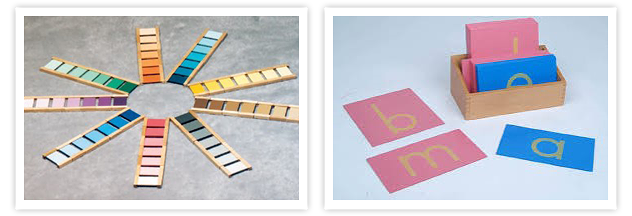
Maria Montessori
READ MORE
Areas of the Classroom

Practical Life is the foundation for all continued growth with a focus on order, concentration, coordination, and independence (OCCI). Through these experiences, children refine their motor skills and develop the confidence to take on new challenges. The lessons teach children to care for themselves, their community, and their environment with lessons like, putting on shoes, respecting another’s space, and dusting shelves.
Sensorial helps children to develop their five senses and use these lessons to develop an awareness of themselves and the world around them. By studying variations in mass, color, temperature, and other units of measurement children develop and sense of curiosity.
Mathematics applies the use of manipulatives to conceptualize the relationship of quantities using various mathematical functions. These lessons help children transition from concrete computations to abstract computations, which cover addition, subtraction, multiplication, division, the decimal system, and more.
Language is ubiquitous throughout the classroom, starting at practical life, transitioning to phonetics, storytelling, and writing a journal. In language, children develop their vocabulary and learn to organize their thoughts to become effective communicators.
Culture encompasses history, geography, biology, art, music and more. These lessons help children understand the relationships and differences relative to their lives and the universe. The lessons here facilitate the development of cognitive processes that foster critical thinking skills.
